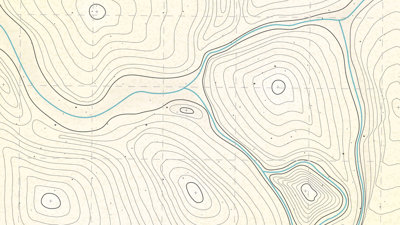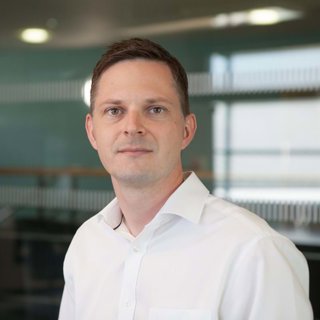How did you get to where you are now?
I studied Fine Art at Liverpool School of Art and Design, having always had an interest in art, design and architecture. My main area of work was the urban landscape, focussing on painting and photography on themes of colour and space.
After graduating I found myself working in GIS/geography by accident, applying for an admin job at a local company (MapMechanics). However, I immediately found it fascinating, particularly the visual side. Being able to answer the why and where questions with data is an incredibly satisfying thing to do, and will give you skills that are very transferable.
Before working at Arup I worked in GIS solution sales at Dotted Eyes (which gave me valuable commercial and technical skills) and as a GIS Officer at Warwickshire Habitat Biodiversity Audit.
Was there anything particularly useful that helped you get into this role?
After my degree I went on to study Digital Imaging and 3D Modelling and Animation at the University of West London. These postgraduate courses were particularly valuable and influential on me, and I would definitely recommend it.
Besides that I was incredibly fortunate to receive a kick start to my career at MapMechanics, where at a young age I was given a chance and a fantastic working education in GIS, data and analysis. Many thanks to Theresa Barlow, Mary Short and Chris Greenwood!
What you are responsible for? What you might do in a typical week?
I co-lead a team of 14 geospatial and digital specialists, as part of Arup’s Infrastructure group in the UK. Being a multi-disciplinary firm of engineers and consultants, the team provides geospatial glue to make the most out of project data and answer questions.
In a typical week I will provide guidance to the team and plan resources on projects, aiming for a balance between skills, project demands and workload.
I also work on projects ranging from environmental impact assessments, or design of major infrastructure such as bridges, tunnels or railways. Usually I will automate analysis or map production with FME software, create 3D visualisations using Blender or Unity, or have a digital lead role on projects.
What skills and characteristics do you need for this role, apart from geographical knowledge?
Creativity plays a big role in being a geospatial consultant. Often you are given a problem to solve, and need to come up with a new approach, particularly with regard to the data available and in selling the solution to internal and external clients. As technology is constantly evolving there is no single ‘best’ way, and if you always do things the same way, or the same as everyone else you will have no competitive advantage or innovation.
Also having the ability to do things efficiently is crucial, so that analysis or outputs can be automated and provide consistent, quality results.
How does geography feature in your work?
Geography and geographic data is at the heart of my work, and is integral to making very complex infrastructure projects work. It makes it possible to join otherwise disparate pieces of data together, and tell a story.
An example would be finding a route for a new tunnel, considering the least impact on people and the environment, and practical constraints such as the maximum alignment curvature or gradient.
What do you enjoy most about your job?
It is unfortunate that some of the projects I've enjoyed the most are confidential, often at early stages and can't be shared. These are usually feasibility studies or concept designs for bridges or tunnels, often using cutting edge engineering or in exciting locations. These are the most exciting for me, particularly when part of a team of experts in their field asking ‘what if?’
What advice would you give to someone wanting to go in to this career?
My advice would be to be open minded, and to keep up to date with the latest technology. Attend as many webinars and talks as you can, and talk to people on social media. You will be amazed how open people will be if you just ask them a question!
So much of working in geography today involves GIS, which often diverges into scripting, web development, analysis and project management. I never thought I would end up where I am, so go with the flow, learn about what interests you and don't specialise too early.
Why did you choose geography?
The honest answer is that it chose me! I was always interested in geography at school, although I was never very academic and didn't do particularly well at it. I think I was overwhelmed with the size of the subject, which seemed to me at the time to be learning about everything, ever. I have always loved maps, and have a strong memory at school of drawing a cross section of a river by scaling off an Ordnance Survey map which stuck with me. Thanks to my geography teacher Mr Noraika!
So I suppose the answer is to explore the particular parts of geography you enjoy and don't be put off by thinking you need to know it all.
* This interview was undertaken in 2021 and was correct at the time of publication. Please note that the featured individual may no longer be in role, but the profile has been kept for career pathway and informational purposes.

